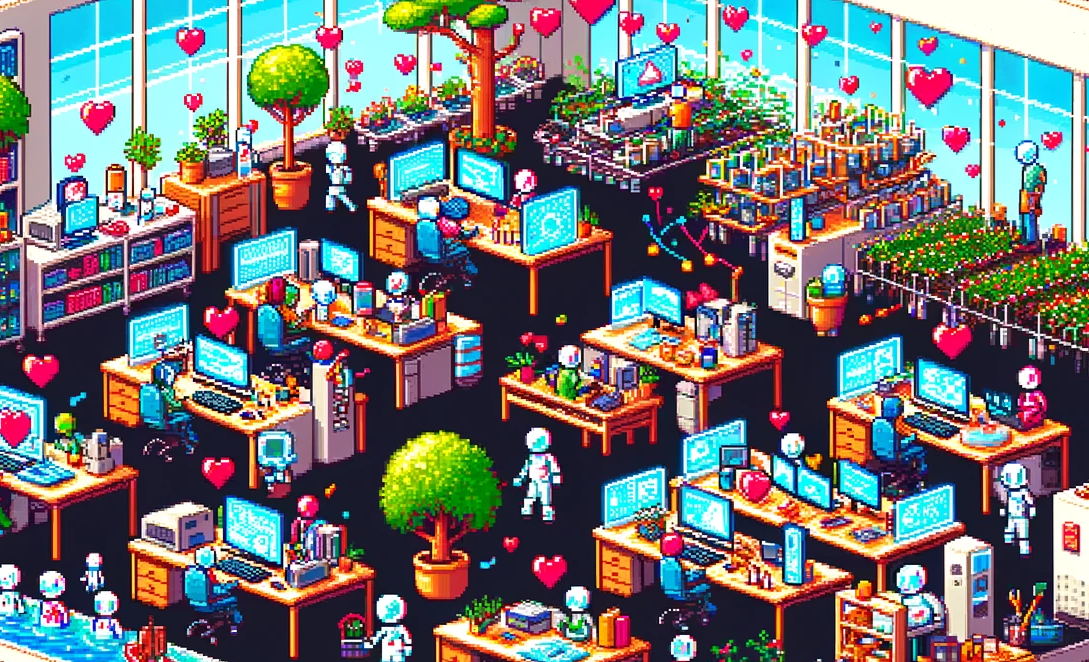Mission
Crowdsourcing Cures AI Acceleration grants are available to help non-profits accelerate their world-improving missions to maximize global preference satisfaction and minimize suffering.
Approach
We’re providing grants to support non-profit organizations interested in collaborating with other organizations and individuals to develop a shared, open-source, self-improving autonomous agent framework and platform that any nonprofit organization can use to accelerate its mission.
Specific Objectives
Grants can be used to support:
- Hiring an intrinsically motivated AI engineer to lead the project and help with implementation for other non-profits
- Creating bounties for specific tasks that need to be completed to make the project useful to their organization’s mission
- Hosting Collabathons, which are like hackathons, but all participants work together on the same open-source project. Judges vote on what contributions get accepted and the rewards for them. These produce more long-term value than just creating little projects typically abandoned after the hackathon.
- Operationalizing autonomous agents to automate their specific operations
Mechanism for Human-AI Cooperation
Given the limitations of current AI reasoning and context length, it’s important to facilitate symbiotic human-AI cooperation to leverage the strengths while mitigating the weaknesses of each.
The mechanism for human-AI cooperation in the Positron Network uses GitHub issues and pull requests to blend human insights with AI’s capabilities. This approach allows for effective collaboration, leveraging the strengths of both humans and AI in the network’s development and maintenance. Here’s how it works:
1. Issue Creation and Identification:
- AI-Generated Issues: The AI, like the Positron Network Architect Agent, identifies potential enhancements or issues within the network. It then creates GitHub issues detailing these findings.
- Human-Generated Issues: Network participants (developers, non-profit staff, etc.) can also create issues on GitHub to suggest changes, report bugs, or propose new features.
2. AI Analysis of Issues:
- The AI reviews and analyzes both AI-generated and human-generated issues.
- It prioritizes them based on predefined criteria such as impact, feasibility, and alignment with the network’s goals.
3. Human-AI Discussion:
- Collaborative Deliberation: For each issue, there’s a collaborative discussion involving both humans and AI. The AI can provide data-driven insights, simulations, or projections to inform the discussion.
- Feedback Integration: Humans provide contextual understanding, ethical considerations, and strategic direction. They can offer feedback on the AI’s suggestions and analyses.
4. Pull Request Creation:
- AI-Driven Development: For issues where AI can autonomously develop solutions (e.g., code optimizations and documentation updates), the AI creates a pull request with the proposed changes.
- Human-Driven Development: For more complex or sensitive changes, human developers make the necessary modifications and submit pull requests.
5. Review and Merging:
- Pull requests are reviewed by both humans and AI.
- Human Review: Humans ensure that the changes align with the overall mission, adhere to ethical standards, and are pragmatically sound.
- AI Review: The AI can perform automated tests, code analysis, and impact simulations.
- Once approved, the changes are merged into the main branch of the repository.
6. Continuous Learning and Adaptation:
- The AI learns from human feedback and decisions made on issues and pull requests, refining its future contributions and analyses.
- Human participants also gain insights from AI-generated data and recommendations, enhancing their decision-making processes.
7. Documentation and Transparency:
- All discussions, decisions, and changes are documented transparently on GitHub.
- This ensures a clear audit trail and allows for broader community engagement and oversight.
This human-AI cooperation mechanism facilitates a synergistic relationship where AI enhances human capabilities with data-driven insights and automation, while human participants provide contextual intelligence, creativity, and ethical guidance. GitHub, as a platform, offers an ideal environment for this collaboration, with its APIs and tools for issue tracking, code review, and version control.
Human-Human Cooperation
To facilitate cooperation between various non-profits, we will use a combination of SCRUM and Sprint Planning meetings. These meetings should be transcribed using a service like Fireflies.ai. The transcriptions should be sent to the Project Manager Agent to turn action items into GitHub Issues and the Documentation Agent to update documentation files in the repository.
Project Manager
The AI engineer will be responsible for:
- Coordinating between the various non-profits to ensure the project is aligned with their needs
- Running SCRUM and Sprint Planning meetings
- Ensuring that meeting transcripts are converted to GitHub Issues and Documentation
- Creating GitHub Issues for the tasks that need to be completed
- Creating bounties for the tasks that need to be completed
- Be available to answer questions from contributors from 9 to 5 PST Monday through Friday
- Respond to GitHub Issues and Pull Requests within 24 hours on weekdays
- Facilitate collaborative resource allocation decisions through the use of quadratic funding, participatory budgeting, and retroactive public goods funding
F.A.I.R Code
Code developed with grant funding should be collaboratively developed in a shared open-source GitHub repository to meet the FAIR principles of findability, accessibility, interoperability, and reusability.
